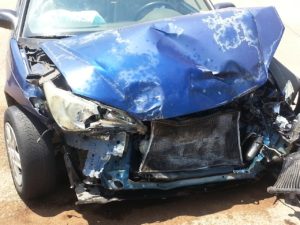If you have been involved in a car accident caused by another person, you will understand that filing a claim and seeking compensation can be challenging. However, resolving the case even gets more complicated if you are partly at fault or the other driver blames you for the accident. Unfortunately, this would be the case even if you work with auto accident lawyers in Douglasville.
Determining one’s contribution to an accident can be very difficult. First, you may have to prove that the other driver was negligent while on the road. In addition, while you may be able to prove this, the other driver can still avoid full or partial liability by establishing contributory or comparative negligence.
Comparative negligence is a term that most people do not recognize but is very important in many car accident cases. For example, Douglasville, Georgia, is a fault accident city. This means that when two or more drivers are responsible for a car accident, they will bear the losses from their negligent actions.
Therefore, you will have to prove the other driver’s negligence to recover any damages you deserve. Our auto accident lawyers in Douglasville can help you understand comparative negligence in a car accident case.
Auto Accident Lawyers in Douglasville Explain Comparative Negligence
Consider this example: it’s Sunday morning, and you are driving out to church or the grocery store. Now, you are passing through an intersection with a green light, and you pick up your phone to reply to a message. Unfortunately, while you are picking up your phone, a drunk driver who is speeding blows through the intersection, ignoring the red light, and hits your vehicle from the side.
In this car accident case, if you file a personal injury claim, the other driver’s accident lawyers in Douglasville might claim that you are partially responsible for the crash because you were distracted by your phone. However, the judge might conclude that the drunk driver is 85 percent responsible for the crash, and you are 15 percent responsible as well.
This explains the comparative negligence rule. It states when an accident occurs, each party’s fault or negligence is based upon their respective contributions to the accident.
Comparative Negligence in a Car Accident Case
Again, the comparative negligence principle in a car accident applies when two or more parties share fault for a car accident. This system ensures that the at-fault party still bears liability for losses incurred from the accident.
The injured plaintiff may recover damages for the injuries and other losses in a comparative negligence system. However, the plaintiff’s negligence in the accident will be factored in and reduced from the total compensation. In addition, each party’s fault percentage depends on factors such as evidence from the accident, witnesses, etc.
For example, if a plaintiff suffered damages worth about $15,000 and, from the evidence, they contributed 20% to this injury. Their compensation will be reduced by $3,000 to reflect their 20 percent share of fault for the accident.
In addition, according to the modified comparative negligence principle, you are only entitled to damages if your percentage of fault is less than the other person’s. This means that once your fault exceeds 51%, you lose all rights to compensation.
What Is the Difference Between Comparative Negligence and Contributory Negligence?
Many people find differentiating between comparative and contributory negligence challenging; however, both terms differ. Although, some states use both concepts to share accident responsibilities among at-fault parties.
The comparative negligence principle reduces your entitled recoverable compensation depending on your level of fault. However, contributory negligence prevents you from receiving compensation once you partially contributed to the accident.
This means that even if you are 1% at fault in the accident, the judge will still deny you compensation. So, the defendant only has to prove that you acted negligently or contributed to the crash in any way and they escape paying for any losses. However, the contributory negligence principle does not apply in Douglasville.
Factors Used to Determine Comparative Negligence in Douglasville
Everyone using the road, from the motorist, pedestrian, and passenger to the bicyclist, has a responsibility to obey traffic rules. So, if car accident victim fails to protect themselves and others, they can be deemed negligent and at fault for their injuries.
However, some factors are considered when determining comparative negligence in car accidents.
- Speed
Car accidents usually happen in a blink of an eye. So, if an injured driver was speeding at the time of the accident and was likely the cause, the judge will find the driver at fault for the accident.
- Phone Use
This is one of the most common negligent factors used to determine fault in a car accident case. As a result, injured drivers who could have swerved to avoid an accident but got distracted by their phones will likely have their potential compensation reduced. However, the reduction is still based on the percentage of their fault.
- Alcohol/Drugs
Driving under the influence of alcohol or drugs is another common contributor to accident cases. A victim who drives while impaired will have their compensation reduced if their impairment contributed to the crash.
- Use of Seatbelt
You might be surprised to know that refusal to wear a seatbelt can be strong evidence of comparative negligence. Although, there are limitations on how much a person’s failure or refusal to use a seatbelt can reduce their compensation if they get injured.
Other examples of a person’s conduct that might result in comparative negligence include:
- A pedestrian making unexpected or sudden movement or jaywalking
- A person intentionally driving with a drunk, sleepy or reckless driver
- Intentionally driving in a defective car
- A person interfering with the driver’s operation of the vehicle
Contact Experienced Accident Lawyers in Douglasville
You may be eligible for compensation if you have been in a car accident caused by another person’s negligence. However, is the other party pinning the accident on you? Or do you think you are partly responsible for the accident?
If you answered yes to these questions, you need accident lawyers in Douglasville . Our lawyers at Hartley, Rowe, and Fowler will evaluate the case and determine the extent of your fault, if any. In addition, we will also help ensure that the other part does not pin the blame on you.
However, even if you were partially at fault, our personal injury lawyer in Douglasville will ensure that you receive adequate compensation. So, contact us today for a free consultation; we work on a contingency fee basis.






